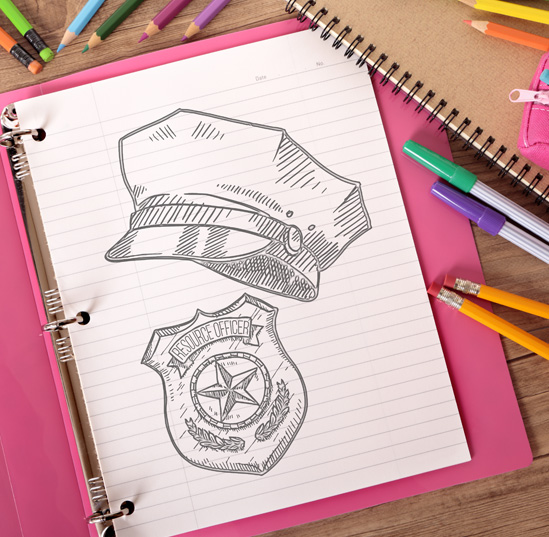
Do school police make students feel safer?
Nationally, armed school resource officers (SROs) are part of many students’ daily experience. In Florida, state law even requires armed personnel in schools for the protection of students. Amid a national conversation on policing following the killing of George Floyd, though, how can policymakers also ensure students feel safe at school?
UF education professor and director of the Education Policy Research Center, F. Chris Curran, addresses this question by looking at how interactions with SROs predict students' feelings of safety and likelihood of being disciplined in research to be published in the journal Educational Evaluation and Policy Analysis.
"When officers are in schools, we need to attend to where the research shows potential unintended consequences and build clear boundaries," Curran said. "Doing so can help maximize the benefits of SROs’ presence while minimizing the chance of a harmful experience like arrest or suspension."
Prior research asked how having an SRO present impacts student outcomes. However, Curran and his team dug deeper to look at student outcomes based on the frequency of student interactions with, trust in, and comfort talking to SROs in schools.
The team found students who have many interactions with an SRO reported feeling that the officer did contribute to the school's safety. Students who reported more trust in and comfort talking to SROs also reported feeling safer at school. Curran noted that “these findings point to the importance of relationships and respect between SROs and students.”
However, for some students, SROs’ presence drew attention to the notion that school might not be a safe place.
“If an SRO says, ‘I'm not here to arrest you, I'm here to keep you safe,' that might make a student feel protected, but also wonder, 'What are they watching out for? What is it that I should be scared of?’ This may be unjustified given that schools are, on average, very safe places," he said.
In addition to safety, the study also looked at school discipline outcomes. Prior research has found SRO presence can increase exclusionary discipline, like suspension. But, Curran and his team found that in a well-resourced, predominantly white setting with a clear policy that SROs not be involved in discipline, SROs roles’ focused more on protecting students from external threats of danger while simultaneously emphasizing mentoring and relationship building. The study finds that frequency of interactions with SROs did not predict more disciplinary consequences.
As communities nationwide revisit whether SROs should be present in schools, Curran notes that there is a need for discussions to “acknowledge the realities of police violence and over policing of communities of color and use that as a jumping-off place for the policy conversation.”
As part of these conversations, this study’s findings point to policies and practices that can encourage positive interactions between SROs and students that may increase feelings of safety while minimizing unintended negative consequences of police in schools.
